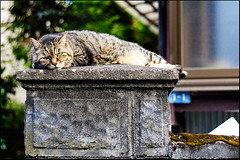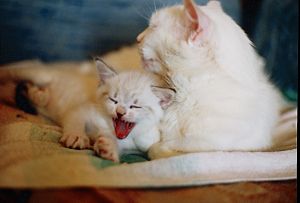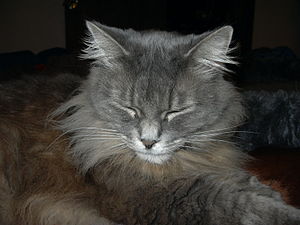Healthy digestion and bowel regularity are both important to the health of your cat, no matter what its age. Unfortunately, cats that suffer from frequent hairballs may experience constipation, which can ultimately result in kidney damage and other health problems. Still, there are many remedies for hairballs in cats, including the use of wheat bran.
Homemade Wheat Bran Treatment
If you’re looking for a natural remedy for your cat’s hairballs, try mixing the following ingredients together:
- one tablespoon of wheat bran
- one teaspoon of rice bran, or two teaspoons of canned pumpkin
Add this concoction to your cat’s regular food or serve as a treat on the side (many cats enjoy the taste of canned pumpkin). You can repeat this meal once every few days, but you shouldn’t feed your cat this too regularly, as it can be high in calories and fattening. In fact, this recipe is best for cats that are an average weight already and suffering from hairballs.
How does this work to help your cat get rid of hairballs? Essentially, it’s a way of adding a large amount of fiber to your cat’s diet. Since fiber helps stools pass, this homemade wheat bran recipe is a great way to help your cat pass hairballs through the digestive tract.
As a result, your cat will receive the relief it needs from constipation while also expelling hairballs that could otherwise be dangerous. Furthermore, you’ll enjoy finding fewer hairballs coughed up by your cat. It’s a win-win situation for everybody.
There are many treatments for constipation in cats, especially constipation caused by hairballs. However, if you’re looking for a natural treatment that you can whip up with just a couple simple ingredients at home, this is definitely one worth trying.



